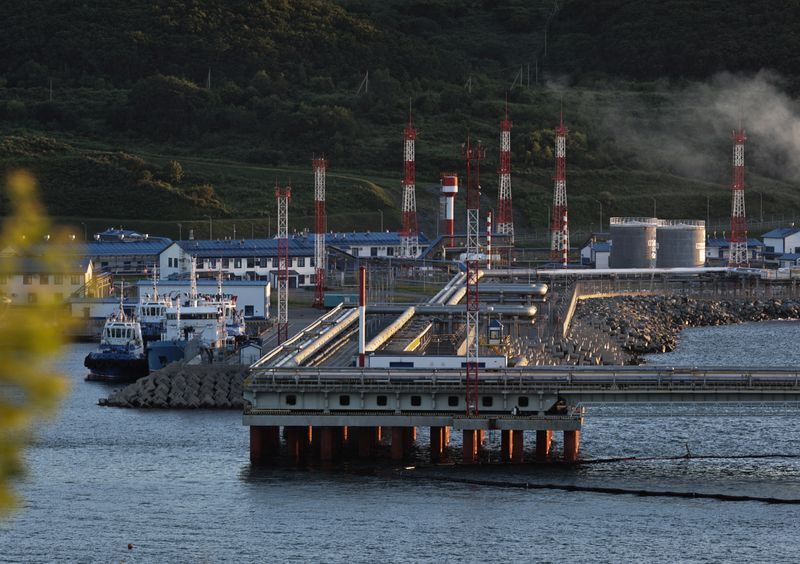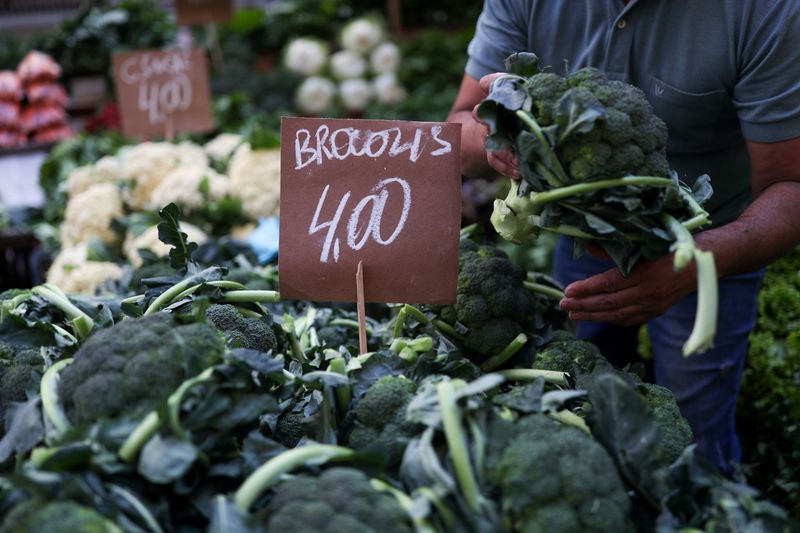By Paul Carsten and Nia Williams
(Reuters) -Oil prices ticked up on Thursday after Israel and Lebanese armed group Hezbollah traded accusations that their ceasefire had been violated, and as Israeli tanks fired on south Lebanon.
OPEC+ also delayed by a few days a meeting likely to extend production cuts.
Brent crude futures edged up by 34 cents, or 0.5%, to $73.17 a barrel by 2026 GMT. U.S. West Texas Intermediate crude futures were up 16 cents, or 0.2%, at $68.88. Trading was thin because of the U.S. Thanksgiving holiday.
Israel’s military said the ceasefire was violated after what it called suspects, some in vehicles, arrived at several areas in the southern zone.
The deal, which took effect on Wednesday, was intended to allow people in both countries to start returning to homes in border areas shattered by 14 months of fighting.
The Middle East is one of the world’s major oil-producing regions, and while the ongoing conflict has not so far not impacted supply it has been reflected in a risk premium for traders.
Elsewhere, OPEC+, comprising the Organization of the Petroleum Exporting Countries and allies including Russia, delayed its next policy meeting to Dec. 5 from Dec. 1 to avoid a conflict with another event.
Also supporting prices, OPEC+ sources have said there will again be discussion over another delay to an oil output increase scheduled for January.
“It’s highly unlikely they are going to announce an increase production at this meeting,” said Rory Johnston, analyst at Commodity Context.
The group pumps about half the world’s oil but has maintained production cuts to support prices. It hopes to unwind those cuts, but weak global demand has forced it to delay the start of gradual increases.
A further delay has mostly been factored in to oil prices already, said Suvro Sarkar at DBS Bank. “The only question is whether it’s a one-month pushback, or three, or even longer.”

Depressing prices slightly, U.S. gasoline stocks rose 3.3 million barrels in the week ending Nov. 22, the U.S. Energy Information Administration said on Wednesday, countering expectations of a small draw in fuel stocks ahead of holiday travel. [EIA/S]
Slowing fuel demand growth in top consumers China and the U.S. has weighed on oil prices this year.
(Reporting Nia Williams in British Columbia and by Paul Carsten and Enes Tunagur in London; editing by David Goodman, Jason Neely, David Evans, David Gregorio and Diane Craft)






